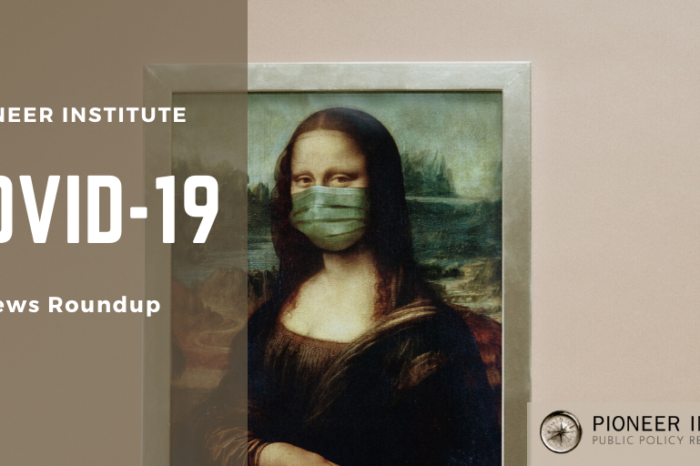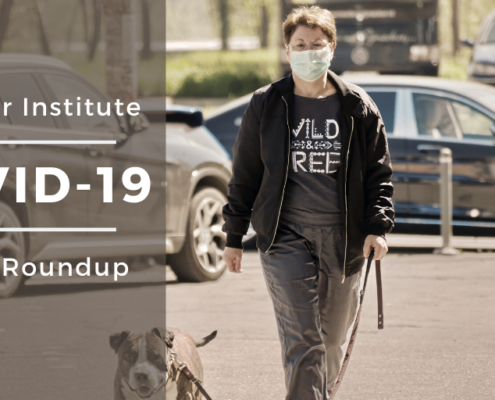COVID-19 Roundup from Pioneer: Tracking drug discovery efforts; Secrets to Germany’s success; Unemployment tsunami; Voc-techs answering the call; COVID prevalence by town & more!
Pioneer staff share their top picks for COVID-19 stories highlighting useful resources, best practices, and questions we should be asking our public and private sector leaders. We hope you are staying safe, and we welcome your thoughts; you can always reach out to us via email: pioneer@pioneerinstitute.org.
Our Top Picks for COVID-19 Pandemic News:
Jim Stergios, Executive Director: If you want to follow the dozens of drug discovery efforts underway to address the coronavirus, this is a good source of information.
William Smith, Visiting Fellow in Life Sciences: The FDA provides regular updates on their activities related to COVID-19, here.
Also from Bill: How did Germany flatten the curve so quickly? One theory: a very efficient, effective and early testing program.
Mary Z. Connaughton, Director of Government Transparency: Having a hard time sleeping during this crisis? You are not alone. Here are some tips from the Director of the Vanderbilt Sleep Division at Vanderbilt University Medical Center.
Our Picks for Public & Private Sector Best Practices:
Barbara Anthony, Senior Fellow in Healthcare: Massachusetts needs to up its game on case data transparency to better inform the public and local authorities. Secrecy is no friend during these trying times. Read Barbara’s commentary in The Boston Globe, and her recent Worcester Telegram & Gazette op-ed. For example, check out the State of Connecticut’s daily release of COVID-19 prevalence by town.
Jamie Gass, Education Policy Director: Read homeschooling tips from Pioneer author Bill Heuer in Boston.com. Bay State voc-techs like Blackstone Valley Regional are using 3D printers to make components for hundreds of face shields.
Questions for Our Public & Private Sector Leaders:
Jim Stergios: Just as Governor Charlie Baker came to the rescue with the mask shipment from China, will he make investments and forge partnerships to ensure that the schoolchildren of Massachusetts continue to receive a quality education? Read Jim’s recent Boston Globe op-ed offering suggestions. And read this ranking of states on distance learning – Massachusetts gets low marks here.
Also from Jim: When this crisis passes, we will need to appoint a Congressional commission to review abuses of power and civil rights occurring during the coronavirus pandemic. These sorts of things (example 1 and example 2) are happening far too often. With the necessary testing and “surveillance” to come as states “re-open,” expect more and worse. Political leadership and clarity for law enforcement would help. But let’s get through this, and then with purpose and principle, fix things.
Greg Sullivan, Research Director and Charlie Chieppo, Senior Fellow: The COVID-19 recession could cause Massachusetts’ unemployment rate to skyrocket to 25.4 percent by this June – will our leaders take action to address this state budget crisis? Read more in the State House News Service, Boston Herald, and Boston Business Journal. And when will the unemployment trust fund run out? Read this Boston Globe column by Shirley Leung.
Do YOU have interesting questions and/or articles to share with us? Please email us, or message us through our social media channels below!
Get Our COVID-19 News, Tips & Resources!
Recent Posts





















